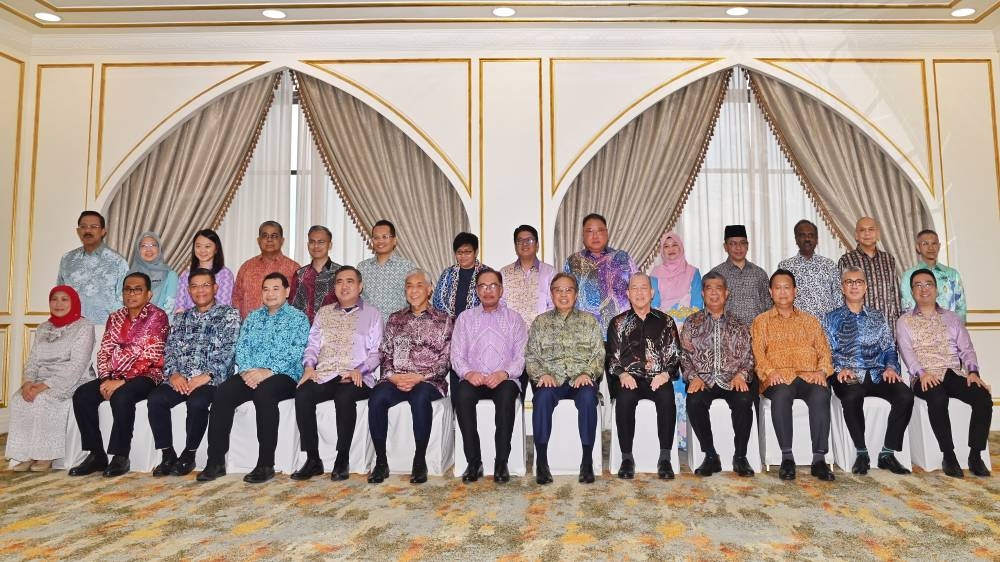Déjà vu for Pakatan Harapan? What sets Umno apart from Bersatu

Barisan Nasional (BN) won 30 seats in the 15th General Election (GE15), but it was able to convince the prime minister to award six ministerial and another six deputy ministerial positions to its party members, including to two who are appointed senators (as opposed to winning a seat via ballot).
They have been called the “kingmaker” because the moment BN decided to pull its support from the Madani government, Gabungan Parti Sarawak (GPS) and Gabungan Rakyat Sabah (GRS) are most likely to follow suit, leaving Pakatan Harapan (PH) with the 81 seats won under the coalition’s banner. This is déjà vu.
Parti Pribumi Bersatu Malaysia (Bersatu), as part of the PH coalition, was able to win 13 seats in the election in 2018, but it was also successful in securing five ministerial positions, six deputy ministerial positions, and most crucially, the job of prime minister. Bersatu was given additional responsibility beyond what was represented in the support it received from the people in an effort to have more equal representation and power dynamics among PH component parties.
The difference between then and now is that Bersatu was officially part of PH whereas BN is its own independent coalition. Nevertheless, there is no denying the almost similar conundrum that BN finds itself in today, which is trying to convince the Malay community that PH does not harbour any animosity against the community.
In 2018 and 2019, PH was under a lot of pressure due to the combined forces of Umno and Pas within the Muafakat Nasional alleging that Malay rights were eroding under a government that included the DAP. As a party that claims to represent Malay interests, of course Bersatu would feel the most heat and decided to leave the ruling coalition in one of multiple hotel moves we’ve had in the country.
Why am I rehashing a not-so-distant history that might still sting many – both Pakatan supporters and detractors? Because there’s worry in the air that BN would “pull a Bersatu” and leave the Madani government with no parliamentary majority to rule the nation.
In almost similar circumstances, BN (an epithet for Umno at this point) is facing an existential crisis given the Malay swing towards Perikatan Nasional (PN) in all the recent elections we have had. Even where Pakatan successfully retained Pulai and Simpang Jeram, PN was able to increase its vote share by 20 per cent and 12 per cent respectively. Therefore, Barisan Nasional now has to choose whether to side with PN and its overtly Malay agenda or stay with PH where it has advantage as the “kingmaker” despite working with its former nemesis (to be clear, Bersatu and PAS used to be Umno’s nemesis as well)?
In my humble opinion, it is better for Umno to stay with PH for numerous reasons. The first that I have consistently been saying is that if Umno joined PN, how would it differentiate itself from others within the coalition? By competing for the same voter base with Bersatu, wouldn’t it lead to similar unstable tug-of-war as happened during the tenure of Tan Sri Muhyiddin Yassin?
With PH, the dynamics is clearer – Umno for conservative Malays, PH for the rest (strictly within the politics of peninsular Malaysia). But most importantly, in my opinion, is the fact that if BN were to “pull a Bersatu”, they would be condemned for causing yet another round of volatility at a time when the current administration already enjoys a majority that is one seat short of two-thirds.
In other words, why go against the wishes of the Yang di-Pertuan Agong, and the people, for political stability, which is to say, stop holding unnecessary elections and start constructing the nation? I do not think Umno could gain much in Perikatan Nasional for reasons I mentioned earlier.
But if they choose to work within this current government at least for the remainder of this term until 2027 and participate in efforts to reform Malaysia politically, socially and economically, I have no doubt it could return to its former glory.
At the moment, Umno has lost its credibility due to the people’s perception of mishandlings by previous party leaders and allegations of similar corrupt practices of its current leaders.
What is required of Umno right now is not for it to flee and seek refuge under the garb of "Malay hegemony," but rather for it to own up to past mistakes and make attempts to repair those faults while preserving what can be preserved. I believe conservative Malays in Malaysia would appreciate a Malay party that is committed to fixing the economy without constantly having to cause fissures with political opponents.
Syaza Shukri, PhD, is an associate professor and the current Head at the Department of Political Science, IIUM.
The views expressed in this article are the author's own and do not necessarily reflect those of Sinar Daily.
Download Sinar Daily application.Click Here!















